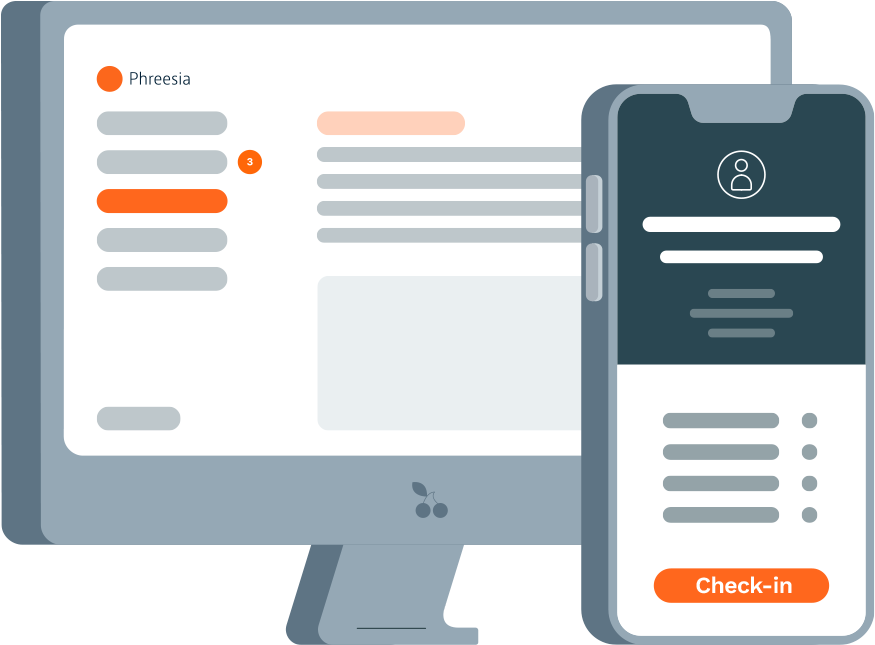While young people typically have fewer health needs than older adults, they still need routine care to prevent poorer outcomes later in life. When patients don’t focus on prevention, their risk of avoidable illness and mortality goes up—as does the cost of their care.
So, how can healthcare organizations connect those patients with the preventive care services they need? It boils down to three key pillars: education, convenience and flexibility.
Phreesia recently surveyed more than 2,000 Gen Z patients—which encompasses those born between 1997 and 2012—about their experiences with preventive care. View the infographic below to see what we learned, including:
- How Gen Z’s knowledge about preventive care compares to older generations
- Which types of preventive services young people know about—and which ones they don’t
- Four strategies you can use to help Gen Z patients get the care they need
Click the image to view the full-sized infographic.

Preventive care and Gen Z: How to close the gap for younger patients
As healthcare organizations look to combat chronic diseases, they’re turning their attention toward Generation Z. Young people, on average, have fewer health needs than older adults, but they still need routine care to prevent adverse health outcomes later in life. So, how can providers connect Gen Z patients with the preventive care services they need?
It boils down to three key pillars: education, convenience and flexibility. A January 2022 Phreesia survey taken by nearly 13,000 patients found that Gen Z, which encompasses those born between 1997 and 2012, trails behind older generations in preventive care utilization. Healthcare organizations have an important role to play in closing that gap—and it starts with providing the information, guidance and support that younger patients need.
Gen Z patients have less knowledge than older generations about what preventive care means…
How much do you feel you understand the term “preventive care,” such as what it means or what it covers?
Gen Z
- 31%: Completely
- 23%: Quite a bit
- 25%: Somewhat
- 9%: Just a little
- 12%: Not at all
Non-Gen Z
- 57%: Completely
- 26%: Quite a bit
- 12%: Somewhat
- 2%: Just a little
- 2%: Not at all
…and many have never heard of some of the most commonly offered preventive care services.
Which of the following preventive care services have you heard of? Please check all that apply.
Responses from Gen Z respondents. Only the preventive care services available to all patients shown.
- 49%: Immunizations
- 47%: Blood pressure
- 43%: Well-baby and well-child
- 42%: HIV
- 40%: Depression
- 40%: Lifestyle counseling
- 38%: Diabetes
- 35%: Cholesterol
- 30%: Colorectal cancer
- 30%: Hepatitis B
- 29%: Hepatitis C
- 15%: Lung cancer
- 11%: Osteoporosis
- 22%: None of these
When patients don’t know about the types of care available to them, they’re less likely to seek it.
- 40% of Gen Z patients have not had an annual wellness visit in the past 12 months…
- 36% …and more than one-third did not receive any preventive care during that time
Gen Z patients also get fewer reminders than other generations about being due for preventive care…
Who typically informs you that you are due for preventive screenings or check-ups? Please select all that apply.*
Doctor’s office
- 36% Gen Z
- 49% Millennials
- 62% Gen X
- 77% Baby Boomers
I don’t get reminders
- 29% Gen Z
- 27% Millennials
- 17% Gen X
- 9% Baby Boomers
*Response options included in this question but not shown: “Insurance company,” “Caregiver or family member,” “Not sure” and “Other”
…and more than half are unsure whether preventive care is covered by their insurance.
Is preventive care covered by your insurance?
Yes, partially or fully
- 37% Gen Z
- 69% Non-Gen Z
I don’t know
- 55% Gen Z
- 27% Non-Gen Z
No and/or not insured
- 7% Gen Z
- 5% Non-Gen Z
Here’s the good news: Gen Z patients understand their knowledge gaps better than anyone else—and they know what types of information would help them get the preventive care they need.
Which of the following types of information would be most helpful to help you get preventive care in the future? Please select up to 3.
Responses shown for Gen Z patients.
- 48%: How much of it is covered by insurance
- 43%: When do I need preventive care
- 42%: What preventive care is relevant to me
- 27%: Where do I schedule preventive care
- 21%: How preventive care/screenings are done
- 15%: Why preventive care is important to me
- 10%: Other
By effectively leveraging automation and technology, healthcare organizations can better engage Gen Z patients and deliver the modern, convenient healthcare experience they want.
Strategies for success
TARGET YOUR OUTREACH
Send resource guides, fact sheets and other educational materials to Gen Z patients to teach them about the importance of preventive care and help them understand their coverage options. These communication methods can help you reach Gen Z patients in ways they expect—and avoid paper and printing costs. When possible, automate your outreach to demographically target patients and ensure that you recommend only those services that are relevant specifically to them.
SEND REMINDERS
Reduce no-shows and increase preventive care uptake by reminding Gen Z patients that they’re due for a visit. For scheduled appointments, reminder messages should include the date, location and reason for the visit. Consider automating the process to customize the timing, cadence and medium of your reminders based on patients’ needs and preferences.
MAKE IT EASY TO BOOK
Gen Z is the most willing of all generations to choose providers who offer digital capabilities, including the ability to book appointments online. Digital tools like self-scheduling can give these patients 24/7 access to book a preventive care visit—even outside of business hours. Self-scheduling also helps healthcare organizations reduce inbound calls, generating significant time savings for call-center staff and clinic schedulers.
INVEST IN YOUR REPUTATION
Did you know that 52% of Gen Z-ers use the internet to answer their healthcare questions before talking to a doctor? With so many young patients going online, it’s crucial that providers create and maintain a strong digital footprint. Automated post-visit surveys can help healthcare organizations collect real-time patient feedback to inform process improvements. Some automated surveys also prompt patients to submit an online review, which can help providers strengthen their reputation and give Gen Z patients an easier way to find a trusted physician.
Learn how Phreesia can help you streamline intake, enhance clinical care and connect patients of all ages with the preventive care services they need.





